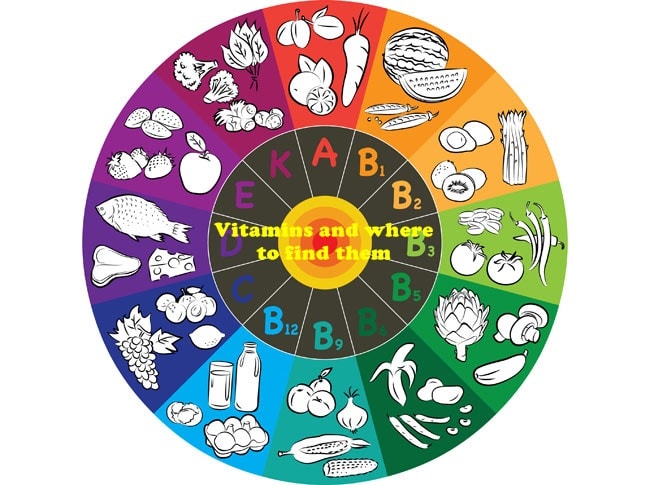 Vitamins and Supplements for Graves’ disease
Vitamins and Supplements for Graves’ disease
by Svetla Bankova
Graves’ disease is an autoimmune disorder and when we talk about auto-immune disorders, everything should be taken into consideration: diet, vitamins and supplements, herbs, exercise, alternative and traditional therapies. Vitamins and supplements alone will not cure your Graves’ disease or hyperthyroidism, but can definitely help some of the symptoms, and support the immune system to perform at its best possible level. So speaking, don’t rely exclusively on them, but DO use them, WISELY, same as with herbs and other complementary therapies. If in any doubt at any time, please, consult your physician, or ask your doctor to run a Vitamins deficiency test (these tests exists and are pretty common).
So, what are the best supplements and Vitamins that can really help? Here are a few, to the best best of my knowledge of course:
Copper
Although supportive data is limited, a report from a study group of hyperthyroid women suggests that copper status should at least be investigated in women with Hyperthyroidism.
“Thyroid and immune system health are crucially dependent upon copper. Copper deficiency could be one of the most important factors in the development of hyperthyroidism. Virtually, all patients in the hyperthyroidism group have found that copper supplementation reduced their symptoms, usually within hours or a few days at most. Most have reported that within three to six months of beginning copper supplementation, they have been able to significantly reduce their intake of antithyroid drugs. While copper is the big story in hyperthyroidism, it is not the whole story. If it were, it would have been discovered years ago. Proper copper metabolism interrelates with and depends upon many other nutrients.” [John Johnson, iThyroid.com]
This opinion was also confirmed in my interview with Dr. Wilson, who spent many years investigating the correlation between copper and hyperthyroidism, and specifically the so called syndrome copper toxicity. Click here to read my interview with him:
So speaking, I would not suggest just running to the closest store to buy copper pills. I would recommend testing to see what is the real situation with your body as we know everybody is different and needs different quantities to perform best.
L- Carnitine
Carnitine is an essential nutrient for transporting fuel (mostly fatty acids) into the cellular “furnaces” known as mitochondria. As muscle cells burn fatty acids in a wasteful response to increased thyroid activity, carnitine turnover is dramatically increased, using up cellular stores of carnitine, while potentially contributing to the increased urinary losses at the same time. The first studies, published in modern literature on the effects of carnitine in hyperthyroidism came from post-war Germany in 1959, with the observation that carnitine had an impact on the hyper-functioning thyroid. Three years later the same researchers reported on the use of carnitine in the treatment of hyperthyroidism; they subsequently demonstrated that carnitine affected the accumulation of iodine in thyroid tissue itself. In the 1970s, Japanese researchers found that there was an increase in carnitine excretion in the urine of hyperthyroid patients. The most recent discoveries regarding L- canitine are done by the Italian endocrinologist Dr. Salvatore Benvenga and his colleagues in 2004. He found shocking things about L- Carnitine and if you would like to learn more click here: —->>>>
On June 22, 2001 Dr. Barbara Gasnier reported the findings at the 83-rd Annual Meeting of the Endocrine Society in Denver, Colorado that selenium supplementation may prevent progression of autoimmune thyroid disease, especially during the onset of the disease. According to the researchers, selenium deficiency appears to contribute to the development and maintenance of autoimmune thyroiditis because of its effect on the function of selenium-dependent enzymes, which can modulate the immune system.
Selenium supplementation with 200 mcg of sodium selenite may improve the inflammatory activity seen in patients with autoimmune thyroiditis, but whether this effect is specific for autoimmune thyroiditis or may also be effective in other organ-specific autoimmune diseases remains to be investigated. Selenium supplementation may also lower free radical activity, which contributes to inflammation.
It appears that taking selenium without iodine will result in a decrease in production of Thyroxine (T4), although there may be an initial transient increase in T4 to T3 conversion and hence higher T3 and seemingly worse hyperthyroidism.
Magnesium
This is the forth most abundant mineral in the body and contributes ti healthy bones and teeth. It also have calming effect on muscles and nervous system (it is usually prescribed to pregnant women with contractions). It can be used in the form of magnesium oil to relieve muscle cramps (typical for hyperthyroidism). It also improves sleep thus should be taken prior to bed. I personally use magnesium oil to massage my muscles when overworked. If you take it orally- combine with calcium as they work hand in hand.
They contain long chain Omega 3 fatty acids. I personally prefer Flax seed oil and I used that for my Thyroid eye disease. For me it worked miracles. Better take with meal to help absorption.
Iron
Low levels of iron can cause fatigue and not well performing immune system. It’s a key component of hemoglobin. Take in the morning, but avoid combination with Calcium, as the last is a major inhibitor.
 Vitamin B12 (or Vitamin B complex)
Vitamin B12 (or Vitamin B complex)
It helps the nervous system to function properly, supports the conversion of food to energy. Prevents memory loss, disorientation, hallucinations, tingling in arms and legs. It’s highly recommended for people with Graves’ disease/ hyperthyroidism as they are usually under tremendous stress. Take it first thing with breakfast to maintain energy levels throughout the day (not on empty stomach).
Vitamin C
Vitamin C is a great supporter of the immune system, powerful antioxidant and boosts the immune system. It’s a water soluble vitamin and stays just a few hours in the body, so it’s better to take it in split doses throughout the day.
Vitamin E
I always recommend Vitamin E for healthy nails, skin and hair. It’s a natural, soluble antioxidant that protects against the damage of free radicals and helps blood circulation and heart. It is best absorbed when dietary fats are present, i.e. milk in cereal, avocado, nuts, yogurt.
These are just a few of the vitamins and supplements that can be useful, but check with your doctor first and run some tests, if necessary, to determine exactly what your body needs. Even though all these supplements are over-the-counter and every body can buy them anytime they interact with each other on a different level and may cause unexpected complications.
Also, as I said before, even if you take all or many of the above Vitamins and supplements for Graves’ disease, it doesn’t mean that this is enough to solve your health problems. This is just one aspect of it.
Have in mind that there is no scientific proof that hyperthyroidism can be corrected just nutritionally. What works for one person may be dangerous or not helpful at all for another. Consult a qualified nutritionist who knows your health condition before starting any supplement program!
